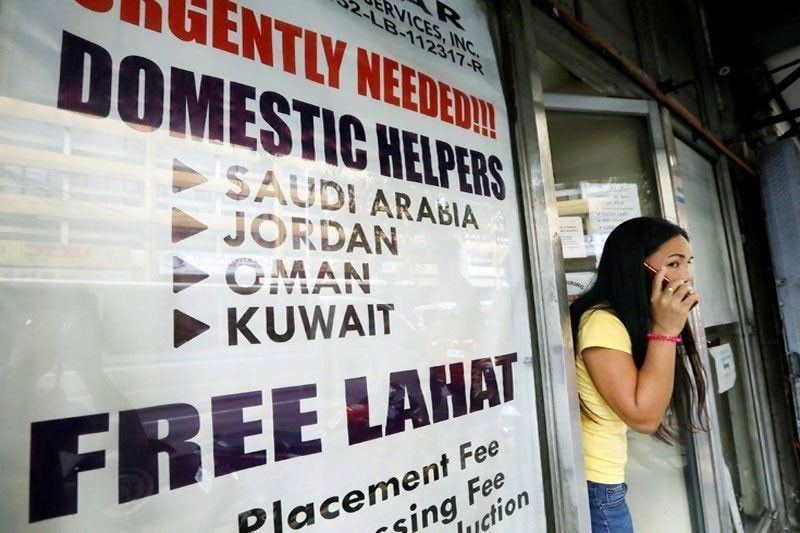Dealing with ‘double burden’: The guilt migrant domestic workers carry

MANILA, Philippines — Alone in a new country, deprived of the familiar protection of family and friends, migrant women workers face unique challenges that many of them also feel guilty for.
For some, leaving home means going to a foreign place to take care of another family.
UN Women noted that women migrant workers are more vulnerable to violence, trafficking, and even discrimination. This is aside from carrying the “guilt” of leaving your family.
“It’s necessary to raise awareness about the issues of women [because it] will also provide a space for women migrants understand that these things that are happening is not their fault,” GABRIELA Hong Kong Chairperson Shiela Tebia-Bonifacio told Philstar.com, adding that many of the problems surface because of the patriarchal society — where men and their needs carry more weight — we live in.
“They should not feel guilty about anything. We don’t choose to work away from our families and we don’t choose to work with these abusive environment but there are some policies that lead to these situations.”
Latest data from the Philippine Statistics Authority show that majority of overseas Filipino workers deployed all over the world are Filipino women.
They account for 60.2% or 1.10 million out of the 1.83 million recorded OFWs in 2021.
‘Double burden’
Spring Sringatin, spokesperson of the Asian Migrants Coordinating Body, said that migrant women workers carry with them a “double burden” — for migrant domestic helpers, its having to take care of two families: theirs and their employer’s.
“We have two responsibilities to make sure that they are happy, that they are healthy,” Sringatin told Philstar.com.
“This is a very big responsibility that falls on the woman moreso during the COVID-19 crisis, when more women did not have enough salaries, especially those who were working as domestic workers.”
In the Philippines, the Asia Development Bank noted that there were more women and youth who lost their jobs because of the pandemic.
RELATED: Oxfam: Over half of women shoulder more household work amid COVID-19 pandemic | In pandemic-era Philippines, women, youth bore brunt of job losses — ADB
Tebia-Bonifacio said there are also migrant domestic workers who feel guilty for not being there for their kids, missing out on the opportunity to watch them grow up.
Recognizing the social impact of labor migration, the Overseas Workers Welfare Administration allocated a P15-million fund to implement the “OFW Children’s Circle” program, where kids left behind by OFW parents can “improve socialization skills” and also explore creative means of expression.
Tebia-Bonifacio notes that the separation between parents and kids break families, but many are willing to risk and face challenges overseas just put food on the table. At the end of the day, she said it should be an indication that the “country has not yet addressed the problem until now and there is no job security back home.”
“This is also our challenge,” Sringatin said. “How do we make sure that women don’t feel guilty for everything?”
Trafficking remains an issue
As most of the world’s economies have opened up again and workers are being deployed from one country to another, both Tebia-Bonifacio and Sringatin are concerned that these may put migrant women workers more vulnerable to trafficking.
Migrante International, in a statement remembering slain OFW Flor Contemplacion, noted cases of Filipina women OFWs who were targetted by trafficking schemes, including the 52 Filipina women and girls trafficked to Syria in 2020.
The group has long been calling for more policy reforms to protect OFWs, but also to put a stop to the country’s so-called labort export program by providing quality jobs back home to prevent more cases of abuse.
“We don’t see a clear protection program for the migrant domestic workers,” Tebia-Bonifacio said, adding that sending governments also sometimes do not orient workers being deployed about the cultures of their destination countries.
“The situation about the social service for migrant domestic workers protections are very poor so that’s why countries opening up to cater more migrant domestic workers may actually lead to more exploitation or abuse, unless policies or root causes of migration will be addressed.”
- Latest
- Trending
































